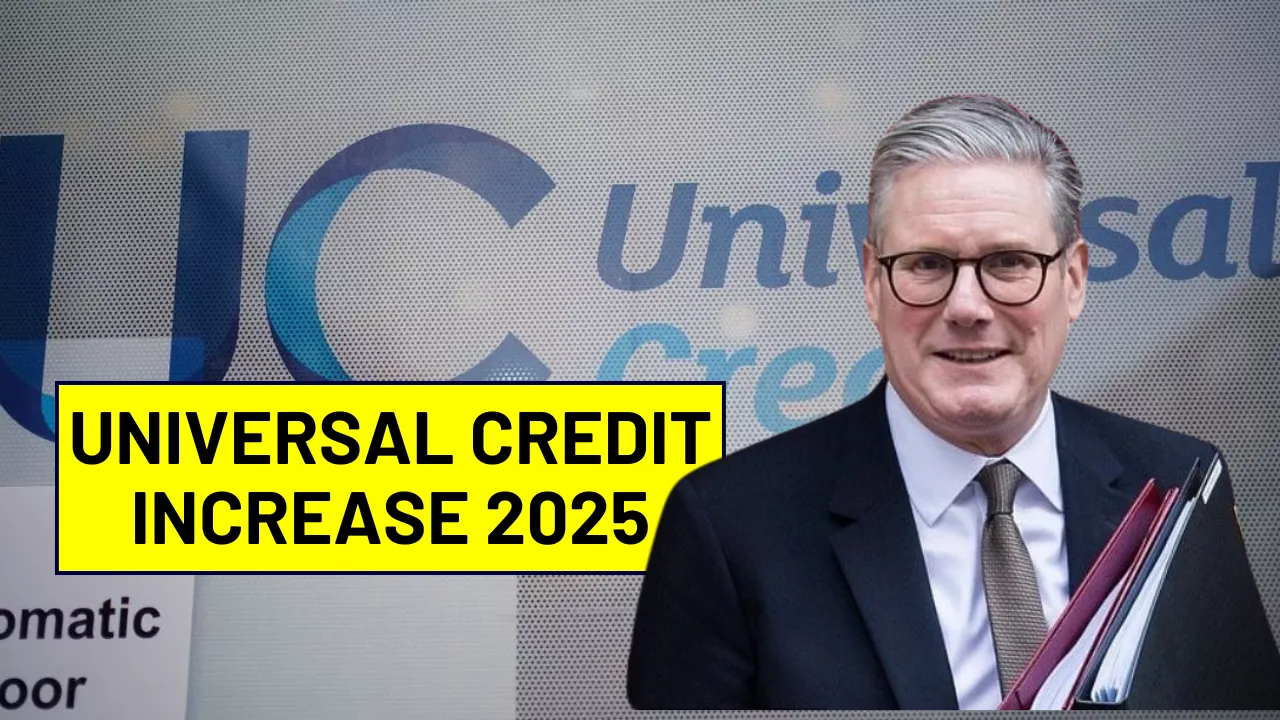Universal Credit Increase 2025: Millions of people across the UK depend on Universal Credit to support their living expenses. With rising inflation and the cost of living still high, any change in benefit payments can make a real difference to households. In 2025, the government has confirmed a 1.7% increase in Universal Credit payments, offering much-needed financial relief. This change reflects the government’s ongoing support for low-income families, particularly during periods of economic instability.
The Universal Credit Increase 2025 was implemented starting April and is set to continue through the year, affecting payment cycles in August, September, and beyond. The increase brings new monthly rates for claimants, reduces maximum deduction limits, and expands support for families and individuals with specific needs. In this article, we break down the new payment structure, eligibility requirements, and other updates you should know about.
Universal Credit Increase 2025
The Universal Credit Increase 2025 includes a 1.7% rise in monthly standard allowances. This adjustment is based on the Consumer Price Index (CPI) from September 2024 and aims to keep benefit payments in line with inflation. The update affects all claimants, including single adults, couples, families with children, carers, and those with disabilities.
In addition to higher allowances, the maximum deduction rate for repaying debts through Universal Credit has been lowered from 25% to 15%, helping families retain more of their benefits. These updates are part of the government’s larger strategy to support financial well-being, especially for vulnerable and low-income households.
Overview Table: Universal Credit Increase 2025
| Category | Details |
| Effective Date | April 2025 |
| Standard Allowance Increase | 1.7% (based on CPI) |
| New Monthly Rate (Single <25) | £316.98 (previously £311.68) |
| New Monthly Rate (Single 25+) | £400.14 (previously £393.45) |
| New Monthly Rate (Couples <25) | £497.55 (previously £489.23) |
| New Monthly Rate (Couples 25+) | £628.10 (previously £617.60) |
| Debt Deduction Limit | Reduced from 25% to 15% |
| Eligibility | Based on income, savings, age, and UK residency |
| Other Support | Additional payments for children, carers, and those with disabilities |
| Migration Status | Legacy benefit claimants transitioning to Universal Credit through migration |
Why the 2025 Increase Matters
The 2025 increase ensures that Universal Credit payments continue to match the cost of everyday living. This is especially important for households dealing with higher prices for food, utilities, rent, and transportation. Though the 1.7% increase might appear small, it adds up over the year and offers consistent relief.
For example, a single adult aged 25 or older will receive an additional £80.28 annually. While modest, that extra money can contribute toward essential needs. The decision to reduce the maximum deduction for debts also helps families keep more of their income, preventing further hardship.
New Monthly Payment Rates for August and September
The new rates have been in effect since April 2025 and continue through August, September, and beyond. Here’s a breakdown:
- Single, under 25: £316.98
- Single, 25 or over: £400.14
- Couple, both under 25: £497.55
- Couple, one or both 25 or over: £628.10
These rates will remain applicable for all regular monthly payments, including those scheduled for August and September.
Additional Support for Families and Individuals
Beyond the standard allowance, Universal Credit includes extra amounts based on your circumstances. These include:
- Child Support: Additional financial aid for each child in the household. Families with children born before April 2017 may receive higher rates.
- Disability Element: For individuals with a disability or long-term health condition that limits their ability to work.
- Carer’s Element: For individuals providing care for at least 35 hours per week for someone with a disability.
These additions aim to make the Universal Credit system more responsive to the diverse needs of UK households.
Debt Deductions Reduced in 2025
From April 2025, the maximum deduction rate for repaying debts through Universal Credit was lowered from 25% to 15%. This adjustment is expected to benefit over 1.2 million households, including nearly 700,000 with children.
The change allows families to retain an estimated £420 more per year, easing financial pressure. It reflects a shift in policy towards prioritizing the basic needs of claimants over aggressive debt collection.
Universal Credit Eligibility Criteria
To qualify for Universal Credit, you must meet the following conditions:
- Income and Savings: Households with savings over £16,000 are usually not eligible.
- Age: Must be under the State Pension age.
- Residency: Must live in the UK.
- Employment Status: Both unemployed individuals and those working on low income can apply.
For full details, it’s best to visit the UK Government Universal Credit site.
Managed Migration for Legacy Benefit Claimants
Those currently receiving legacy benefits like Jobseeker’s Allowance or Housing Benefit will gradually be moved to Universal Credit through a process called managed migration. This transition is ongoing and aims to ensure a smoother, more efficient benefit system under one umbrella.
FAQs About Universal Credit Increase 2025
Q1: How much will my Universal Credit go up in 2025?
A: The standard allowance will increase by 1.7%. For example, a single claimant over 25 will see their monthly payment rise from £393.45 to £400.14.
Q2: When will the new rates be applied?
A: The new payment structure has been active since April 2025 and will apply to future payments, including those in August and September.
Q3: What changes were made to debt deductions?
A: The maximum deduction rate has been reduced from 25% to 15%, giving claimants more take-home funds.
Q4: Who qualifies for extra elements in Universal Credit?
A: Households with children, disabilities, or carers providing 35+ hours of care weekly may be eligible for additional payments.
Q5: What if I’m still receiving legacy benefits?
A: You will eventually be transitioned to Universal Credit under a system called managed migration.
Final Thought
The Universal Credit Increase 2025 reflects the government’s effort to keep benefits aligned with the real-world cost of living. With updated rates, reduced deductions, and added support for families, this policy offers meaningful financial assistance to many households across the UK. If you’re already receiving Universal Credit or considering applying, now is the time to review your details and understand what’s changing.
















